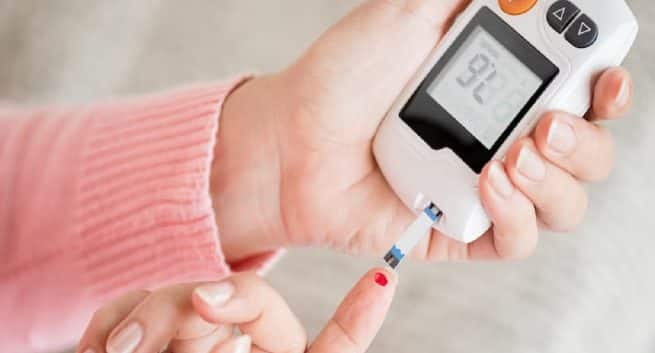Uncontrolled diabetes can affect many major organs including eyes, nerves, heart, kidney and skin. Here’s how you can control your diabetes better. India is the diabetic capital of the world with almost 17% of the total diabetic patients in the world residing in India.
These numbers are expected to rise alarmingly in the coming years due to increase in obesity, stress along with fast food intake and sedentary lifestyle. A patient is said to be diabetic if fasting sugar is more than 126 mg/dl and 2 hours after meal is more than 200 mg/dl or HbA1c (3 months average sugar is > 6. 5%).
It is very important to keep your sugar values in control as uncontrolled diabetes can lead to complications involving eyes, nerves, heart, kidney and skin. shares 7 effective ways that can help you control your diabetes better. Strive to engage in moderate-intensity aerobic activities like , swimming or cycling for a minimum of 150 minutes every week.
Additionally, incorporating strength-training exercises into your routine can aid in building muscle mass and improving your body cells’ response to insulin. Sleeping well and adequately is essential for maintaining the hormonal balance of your body and insufficient sleep can disrupt insulin levels leading to elevated blood sugar levels. To stay healthy, try to sleep restfully for about 7 to 9 hours every night.
Avoid stress and use healthy coping mechanisms like practising mindfulness, doing deep breathing exercises and yoga, or engaging in hobbies to help reduce stress. Opt for complex such as whole grains, legumes, and vegetables, which are rich in fibre and release sugar more slowly into the bloodstream. Avoid or limit refined sugars, sugary beverages, and processed foods example bread, biscuit, rusk, bakery items, namkeen as they can cause rapid spikes in blood sugar levels.
Consider mixing different grains and millets rather than using only wheat or rice as the staple food. Consider using smaller plates and bowls to assist in managing your portions. Include sources of healthy fats like nuts, seeds, and olive oil in your diet.
These fats help to improve the activity of insulin in your body and promote heart health. Drink adequate amounts of water daily to support overall health and maintain proper hydration. Avoid sugary drinks and opt for water, green tea or infused water without added sugars.
Take your medicines on time and as per the timing prescribed as some diabetes medications are to be taken before food and some after food. Don’t be scared of initiating insulin. Uncontrolled diabetes can affect your: Indian diet is carbohydrate rich, so it is important to check your sugar values 2 hours after meal along with your fasting sugar.
HbA1c is the average blood sugar levels over a period of three months. Higher HbA1c levels are associated with an increased risk of developing diabetes-related complications. Continuous glucose monitoring (CGM) which measures the glucose values every 5-15 minutes is the newer technology to reduce spikes in your sugar values throughout the day.
Time in range (TIR) which is calculated over 14 days through CGM is thus a better option than HbA1c to monitor your diabetes control. The target glucose and HbA1c level depend on your age and the associated diseases you have (eg. Heart/ kidney/eyes complications).
For young, active patients the fasting sugar should be 90-130 mg/dl and sugar levels 2 hours after meal should be 110-160 mg/dl and HbA1c 70 %. In older patients the glycemic control should be less strict to avoid hypoglycemia. .
From: thehealthsite
URL: https://www.thehealthsite.com/diseases-conditions/diabetes/7-keys-to-manage-diabetes-1004125/



